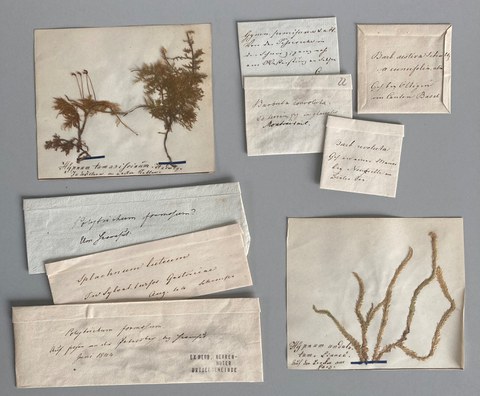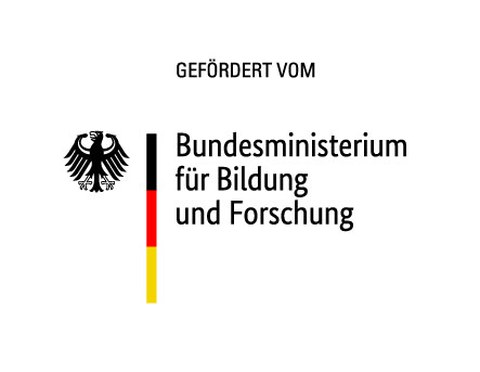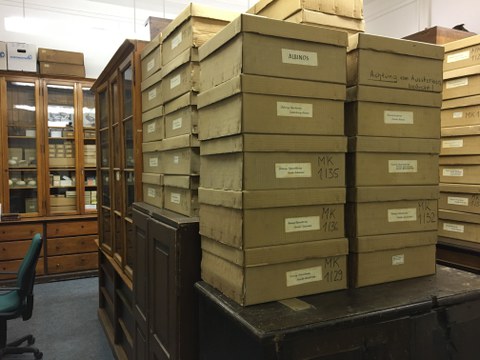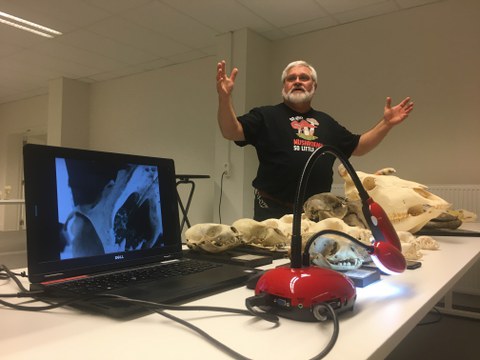Pre-Conference Workshops
The conference will be preceded by three pre-conference workshops, to be held on Tuesday, September 24th, 2024, from 1:30 to 5:30 pm.
Application for all workshops is now closed. Open places, where available, will be assigned via the conference's online registration portal, scheduled to open in April 2024. For more information regarding the registration process, see here.
Workshop 1:
Natural Science Objects in Digital Collections: Opportunities and Challenges
Hosts
Chair of Botany, TUD Dresden University of Technology and the Interdisciplinary Centre for Pietism Research at Martin Luther University Halle-Wittenberg in cooperation with the Saxon State and University Library

Specimens of mosses from the Herbarium Dresdense, which were identified to have been collected by Moravian Church botanists in the 19th century. They will be digitized, enriched with metadata and made available for interdisciplinary research in an ongoing project.
Objects in science collections and their metadata are being made increasingly accessible with the help of digital technologies, so that once purely physical collections are becoming part of a powerful and comprehensive knowledge base. Digitization not only increases the visibility of objects and accessibility of metadata but moreover allows their use in cross-collection analyses and multidisciplinary approaches. Jointly led by the Chair of Botany (TUD) and the Interdisciplinary Centre for Pietism Research at the Martin Luther University Halle-Wittenberg (MLU), and funded by the German Federal Ministry of Education and Research (BMBF), an ongoing research project brings together the natural sciences and humanities to demonstrate the potential of digitization and Linked Data for interdisciplinary research by focusing on the scientific heritage of Saxony (https://tud.link/30kz).
A set of botanical specimens collected in the 18th and 19th centuries by members of the Moravian Church (German: Herrnhuter Brüdergemeine) and stored at the Herbarium Dresdense will serve as case studies to exchange experiences, discuss opportunities, and identify challenges researchers face when using digitized university collections in interdisciplinary approaches.
The workshop, held together with SLUB’s experts for Digital Humanities, will combine short input papers with ample time for discussions based on selected objects and methods. It aims to offer a platform for students and researchers on any career level to exchange knowledge and experience with respect to
- Scientific objects in digital collections
- Using digital technologies to gain multidisciplinary perspectives on objects
- Using Linked Data to connect object information through normative data and methods of TEI (Text Encoding Initiative)
- Challenges of virtual presentation of objects and their metadata
Workshop 2:
Questioning Collections
Host
Coordination Centre for Scientific University Collections in Germany
Drawing on examples from the various collections held at TUD Dresden University of Technology, we will consider materiality, provenance, and use of collections within academic contexts together with collection managers and workshop participants.
Based on their experience, prior knowledge, and expertise, participants will share approaches from various disciplinary perspectives, explore differences, and identify similarities. The workshop addresses the potential of working with collections from an interdisciplinary and transdisciplinary perspective and poses a wide variety of questions about objects, such as:
- What differences and/or similarities emerge when scientists from different disciplines investigate an object’s materiality while examining its production methods or considering questions of conservation?
- How can provenance and object biographies be investigated from different scientific perspectives?
- What methods do we draw upon when engaging with collections and objects?
Participants are invited to bring their own three-dimensional objects.
Workshop 3:
Object-Based Teaching and Learning Today
Host
ERASMUS+ project “Teaching with Objects”
Object-Based Teaching and Learning (OBTL) is of key significance for all university museums and collections worldwide. Closely intertwined with the core mission of these institutions, OBTL’s importance has increasingly been acknowledged in recent years: In 2023, The Chau Chak Wing Museum, University of Sydney, won the UMAC award for its groundbreaking work in this field. At the same time, OBTL’s methods, strategies, and practices have come more sharply into the focus of didactic and scientific inquiry. In early 2022, the UNIVERSEUM network launched an ERASMUS+-project to address central aspects of the topic. Ever since, “Teaching with Objects” has been studying the application of OBTL in relation to academic heritage, with the goal to develop a practice-oriented digital community resource.
For this workshop, the project’s scientific staff invites practitioners, researchers, and curators who use objects in their teaching to share their approaches in short presentations (approx. 5–10 mins) and discuss results. Thus, the workshop aims to reflect on the current state of Object-Based Teaching and Learning and to investigate its role both for higher education generally and for those working in and with academic heritage and university museums and collections.
The workshop will include presentations by:
- S. Grytter (University of Copenhagen, Medical Museion, Copenhagen, Denmark)
- E. Avgeri (National and Kapodistrian University of Athens, Department of Primary Education, Athens, Greece)
- D. Issenmann (Université de Strasbourg, Jardin des sciences)
- J. LoboGuerrero-Arenas (University of Cambridge, Museum of Archaeology and Anthropology, Cambridge, United Kingdom)
- S. Talas (Università di Padova, Museum of the History of Physics)



